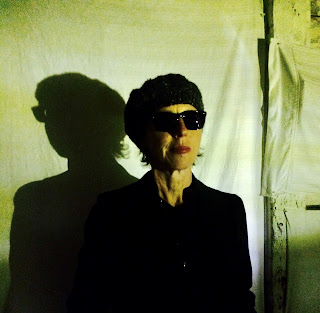A Certain Day: Beth Follett and the Intimacy of Voice
I begin this practice by choosing three poems—the two below, and a third, “Beads,” by Olga Sedakova, translated from the Russian by Martha Kelly. I read each one aloud, to experience the poem through the intimacy of my own voice, my own body.
My Debt (Jane Hirshfield)
Like all
who believe in the senses,
I was an accountant,
copyist,
statistician.
Not registrar, witness.
Permitted to touch
the leaf of a thistle,
the trembling
work of a spider.
To ponder the Hubble’s recordings.
It did not matter
if I believed in
the party of particle or of wave,
as I carried no weapon.
It did not matter if I believed.
I weighed ashes,
actions,
cities that glittered like rubies,
on the scales I was given,
calibrated
in units of fear and amazement.
I wrote the word it, the word is.
I entered the debt that is owed to the real.
Forgive,
spine-covered leaf, soft-bodied spider,
octopus lifting
one curious tentacle back toward the hand of the diver
that in such black ink
I set down your flammable colours.
—from Ledger (Knopf, 2020)
**
Variation on a Theme by Rilke (Denise Levertov)
A certain day became a presence to me;
there it was, confronting me — a sky, air, light:
a being. And before it started to descend
from the height of noon, it leaned over
and struck my shoulder as if with
the flat of a sword, granting me
honour and a task. The day's blow
rang out, metallic — or it was I, a bell awakened,
and what I heard was my whole self
saying and singing what it knew: I can.
— from Breathing the Water (New Directions, 1987)
**
The two poems included here are the ones to land in me with considerable emotional force, particularly Denise Levertov’s. So hers is the one I choose to write about for Concrete & River.
(I encourage you to read both poems aloud, to see if one opens you up to more subtle responses, either emotional or somatic. Drop any attempt to understand the poem in the reading, and simply pay attention to how it lands. A resonance in the voice, perhaps, a long pause, a concertina-ed awareness of time during the speaking of a phrase, can help us to develop valuable lines of inquiry as we pursue poems further and more deeply.)
I directed a Creative Writing program for seven years at a children’s art camp. Many times I read aloud Rilke’s Letters to a Young Poet, for the beauty of the lines, yes, and also for its theme of the pursuit of the difficult. He writes, “It is clear that we must trust what is difficult; everything alive trusts in it, everything in Nature grows and defends itself any way it can and is spontaneously itself, tries to be itself at all costs and against all opposition. We know little, but that we must trust in what is difficult is a certainty that will never abandon us; it is good to be solitary, for solitude is difficult; that something is difficult must be one more reason for us to do it.” Was difficulty the theme Levertov wished to explore? I wonder. There is her word ‘confront.’ There are her words ‘struck,’ ‘blow,’ ‘sword.’ A confrontation. A disruption. By a being equal to the sun’s immensity.
And what is the sun? Our very livelihood, our clock, our daily bread.
The speaker’s experience is singular. A ‘certain day.’ Not every day or any day, but a profound, life-changing day on which she awakens to capacity, to ‘can.' A bell-ringing awakening, such as on an Easter or Christmas morning. I have read that Levertov considered herself Christian, which may help us as we interrogate the metaphor of the bell, though other religions use bells to call their practitioners to prayer.
The speaker is ‘struck’ by the presence of a being as by a queen who grants knighthood, and by that strike experiences an awakening, an honour bestowed, and a task. What is the task?
Perhaps the speaker’s task is to question the experience of waking into self-knowledge and of the singular transition from ‘ cannot' to ‘ can,' the experience itself being the honour. She felt a presence, she saw it, she heard it. And thereafter she said it, she sang it. She did not overlook it, she did not keep the experience to herself. It may be a poet’s task to say, to sing, to ‘ring the bells that still can ring’ — to be bell.
And how beautiful, that Levertov’s poem, published in 1987, rings down the years to reanimate the reader who comes upon the poem, as I did, unwittingly, on a certain day recently, striking me as the very thing I needed to recommit to ‘my whole self.’
It strikes us, we say. An honour. And a task.
—Beth Follett
BETH FOLLETT lives in St. John’s NL. Her novel Instructor, published by Breakwater in 2021, was longlisted for the 2022 NL Book Award for Fiction, and won Bronze in Literary Fiction, Forward Indies Awards.
